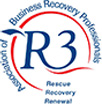Business loans – a highly topical subject at this time. A subject which covers a plethora of options from a multitude of lenders. Working out who is best to provide you with finance is equally important as the finance itself. Any business needs to fully understand who they are dealing with, the precise terms of the loans and what powers the lender has in the event that problems later arise in meeting repayments.
The UK Funding Market
The funding market has radically changed over the past few years, with huge number of new lenders entering the finance marketplace. This has primarily been driven by the traditional high street banks looking to reduce their exposure on traditional overdraft lending and moving to more specific forms of lending. To help with finding the right lender, you need to establish the reason for needing finance.
This will hopefully help you find the right lender with the right financial products for you. This is important given that the right lender will have the relevant experience relative to your circumstances.
Most businesses require some form of funding, whether that be though shareholders funding or from some external provider of business loans and capital, or more usually, a combination of both.
Tailored Business Loans
The majority of business loans are now tailored to the specific requirements of a business, whether that be by way of mortgage, invoice finance, stocking finance or some other form of asset finance. Capital asset finance, hire purchase/leasing etc, has been around for a very long time. Stocking finance and invoice finance are more recent concepts. In particular, invoice finance, whether by factoring or confidential invoice discounting is extremely common and there are well over 1,700 lenders in the UK providing such forms of finance. Choosing the right one is key as charges, industry experience and service can vary greatly.
We have long established relationships with a number of highly respected funders and would be delighted to help you find the right package for you.
More recently, there has also been an increase in the number of private entities entering the business loan market as well as a number of peer to peer lenders. Again, we also have relationships with a number of such lenders and would be more than happy to effect an introduction if we felt this was the right course for you.
Business Loans – What You Need to Consider
Before deciding to take out a business loan it would be useful to run through the following simple points:
- Why does the business need a business loan – a simple and obvious question, but one that will help you decide on the right course of action.
- What is the business loan for? This will help determine who you should apply to for the loan.
- Over what term do you want the loan? The shorter the period, the higher the monthly repayments will be.
- What interest rate will be charged on the loan? A quick internet search will determine whether this is reasonable
- Are there any arrangement fees?
- What will the monthly repayments be? Have you factored this into your forward cash flow?
- What are the rights of the lender in the event you fall into arrears?
- Do you need to give a personal guarantee in support of the loan?
- Do you have a summary of your latest trading summary available – depending on the size of the loan required, most lenders will require a copy of your latest accounts. Some will require profit and cash flow forecasts proving that you can afford the repayments.
Raising Finance Through Factoring or Invoice Discounting – What You Need to Consider
-
If you are thinking about raising finance through factoring or invoice discounting, then a few other questions need to be considered:
- Do you opt for factoring or Confidential Invoice Discounting (CID)? In both instances you effectively sell your invoices to the finance company. With factoring, you sell the invoice, receive a percentage of that invoice from the lender and the lender then collects the whole amount of the invoice from your customer. With CID, you still sell the invoice to the lender, receive a percentage, but you still collect the full payment from your customer. If you use CID, your customer is not made aware of that fact.
- What percentage of the invoice will the lender pay you? This will vary depending upon the industry, the company’s financial position, your customers, and the spread of customers.
- Is there a minimum throughput per annum?
- What are the termination charges should you decide to no longer factor or wish to change lenders?
- Does the lender require a personal guarantee?
If you are seeking any form of finance for your business, we would be delighted to help you. All of our initial consultations are completely free of charge and by using our extensive range of contacts we are confident that we can find the right package tailored to your specific requirements.
We have offices in London, Nottingham, Derby and Stoke, so we are well placed to support businesses UK wide. We are happy to travel to meet you at a convenient location.


